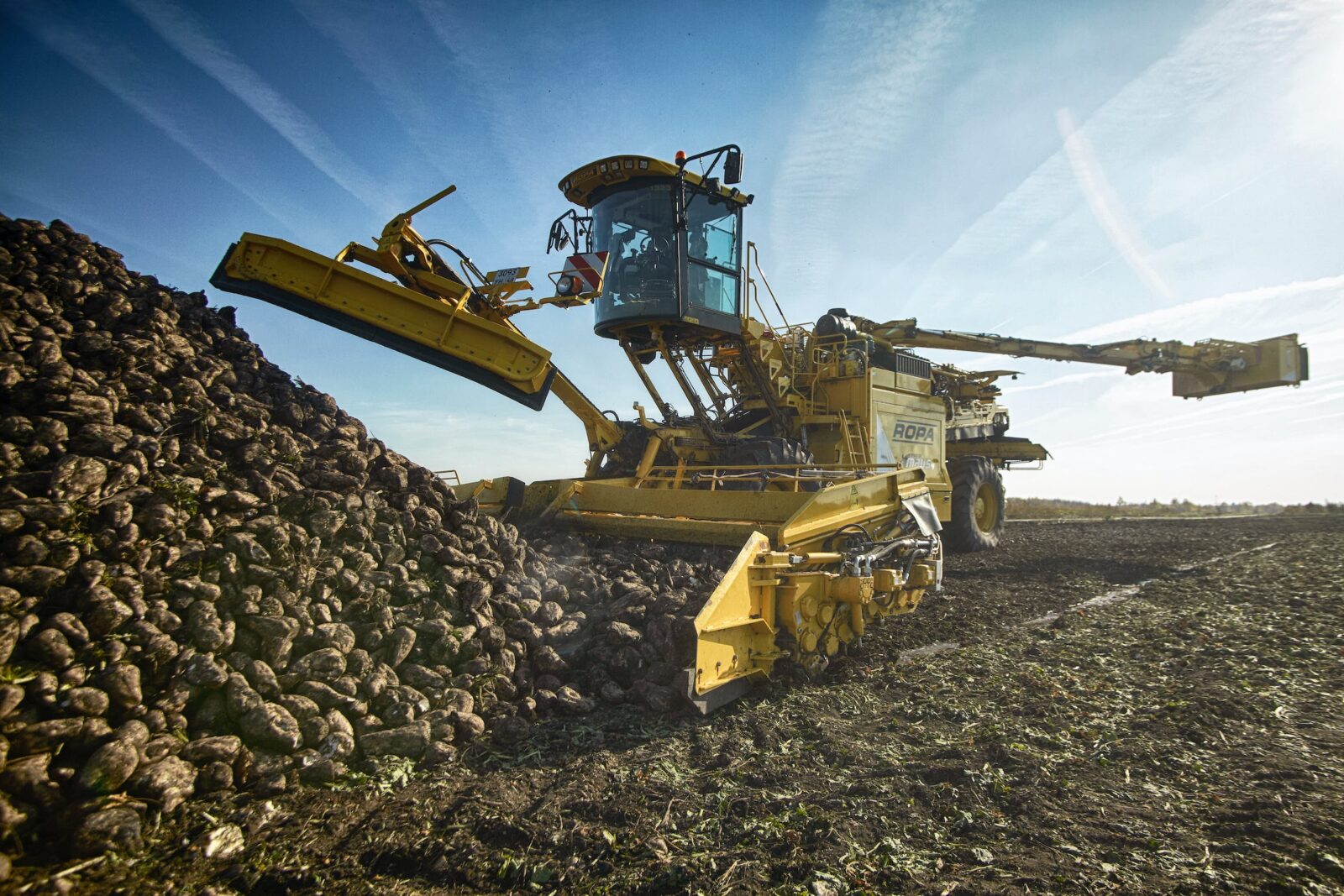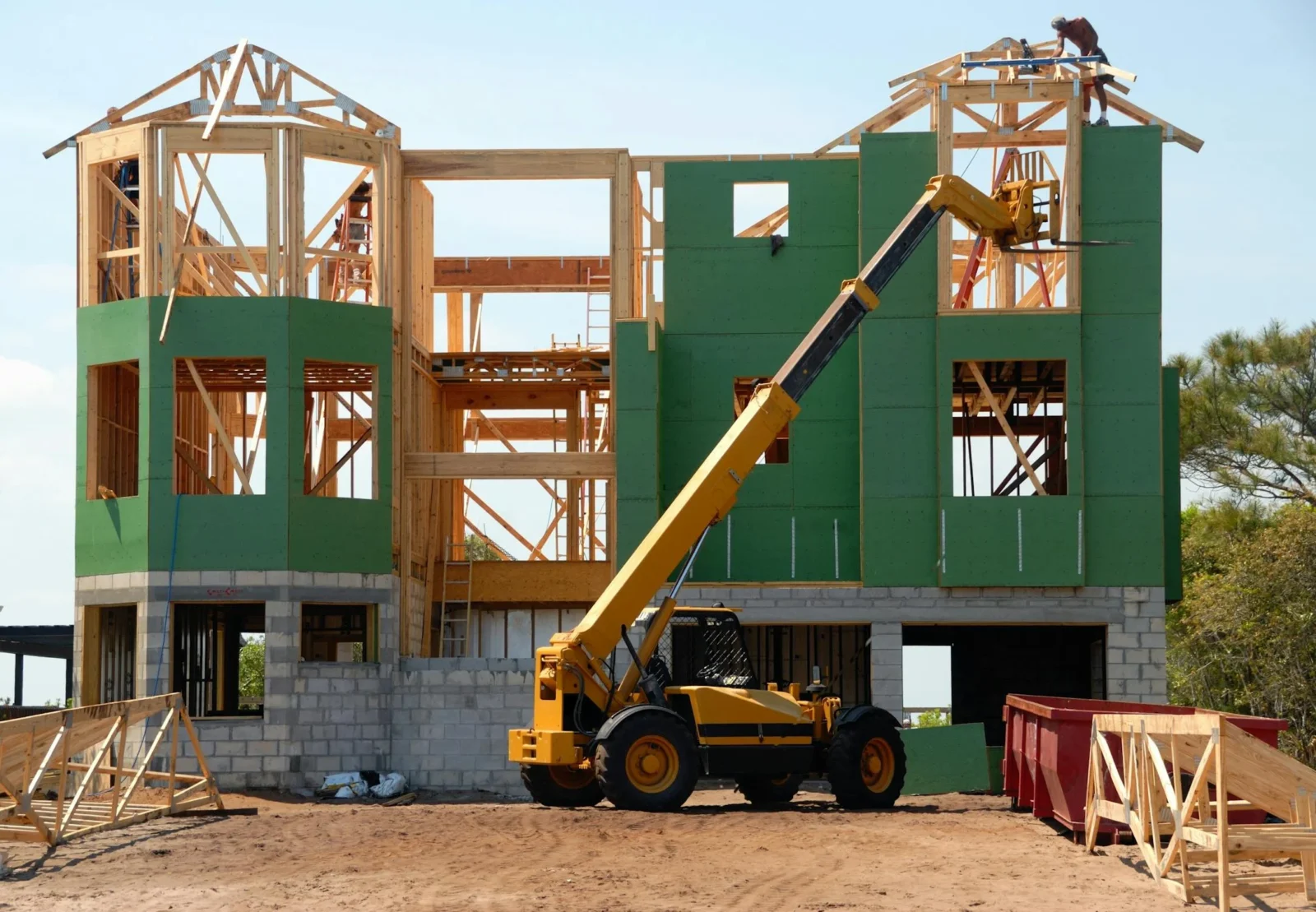Are you thinking of starting a construction equipment dealership? Whether it’s an equipment rental or sales model, it’s the perfect time to do that. The construction industry is finally over the crisis caused by the pandemic and is booming rapidly.
According to the July 2023 AIA Consensus Construction Forecast Panel, spending for commercial, institutional, and industrial buildings increased by 19.7% in 2023 in the US, and experts forecast a further growth of 2% in 2024.
The construction equipment business requires a lot of legwork. You would have to be on top of your business planning, market research, legal requirements, and several other aspects to make it profitable. Unless you’ve already made up your mind, the first step should be to decide whether you want to go for a rental or a sales business.
If you haven’t, let’s discuss the nuances of each format so you can make an informed decision.
Table of Contents
Construction Equipment Dealership: Rental vs. Sales
There are several aspects of the construction equipment business you must consider while deciding between the rental and sales format.
Revenue
A construction equipment rental dealership usually offers a more steady income stream. According to a 2022 report by the American Rental Association, the equipment rental revenue increased by 11% in 2022 and reached a valuation of US $55.8 billion. The report also stated that the market is expected to increase by a further 3.4% in 2023 and value up to US $57.7 billion.
Equipment Watch also states that 84% of company owners prefer to rent equipment at least once a year because of various factors, such as the requirement of specialized equipment for a short time or costs related to location and transportation. However, you should be prepared to endure downtime and loss of revenue in the rental model when equipment breaks down.
On the other hand, construction equipment sales will generate more profit per unit sold. However, the sales revenue is bound to fluctuate now and then based on the demands and economic conditions of the market.
There has been a significant increase in the online sales of construction equipment, which means OEMs are likely to start selling equipment directly to consumers in the near future. Also, your capital investment would be much higher, and it would take longer to break even. But once you do, you can invest your profits to scale your business.
Costs
With the rental format, you would have to consider the costs of maintaining the equipment. You can reduce your operational costs by passing the maintenance responsibilities to the renter, but you would still have to take care of wear and tear.
The sales model eliminates the need for breakdown maintenance, reducing business costs. However, you will still have to take care of preventive maintenance, which can run high if your inventory sits idle for too long.
Other operating costs can influence your decision to choose between the two formats, so you should study them comprehensively before deciding on the business model.
Market Adaptability
The market for construction equipment is ever-evolving. For example, the development of electric construction equipment is nascent, but there’s been notable progress. Volvo recently started testing its mid-sized electric excavator, the EC230. The 23-ton excavator is designed to carry out the operations as efficiently as its diesel-run counterpart while reducing emissions significantly.
Construction contractors also prefer electric equipment due to their numerous advantages. Electric construction equipment can lower operating costs because they don’t burn fuel when idling. Also, electric engines do not fail as often as piston engines due to less wear and tear caused by internal friction.
Construction companies can also save on federal and state taxes when they switch to electric equipment. Using electric equipment also helps with carbon emission credits, offsets, and Environmental, Social, and Corporate Governance (ESG) goals.
While market factors can impact both business models, the effects can vary. The rental format would be able to adapt easily by changing the inventory. However, changing the fleet completely might require substantial capital investment. Also, the inventory might lay idle longer if the market demands are not forecasted accurately.
A construction equipment sales business might be able to respond to market demands by readjusting its inventory faster. For example, a company selling construction equipment can sell its diesel-driven machines and switch to electric equipment if needed. Selling old inventory can reduce the additional capital investment required to refresh the inventory, but the business will need more funds.
These are just some factors you must consider when choosing between a construction equipment rental or sales business. Many other aspects might influence your decision, so talking to a professional business consultant is a good idea.
Now that we’ve compared the two business models let’s talk about what you would need to get started.
Starting a Construction Equipment Dealership

There are some crucial steps to take before starting any business. The construction equipment business is no exception, whether a rental or a sales model.
Define a Clear Scope of Business
The first step is to identify the aim of your business, and it has to be more than renting or selling construction equipment. For example, it can be a new franchise of a brand like Hitachi or JCB in your locality or a small excavation equipment company for home properties. Once you’ve identified the scope of your business, divide the goal into smaller objectives and define a time frame to complete those objectives.
For example, if you’ve decided to sell excavation equipment, you would want to break down your business goals into smaller parts, such as:
- Conduct market research to understand the demand for excavation equipment in your area and identify the market gaps.
- Identify the existing players in the market and the list of equipment/services they offer.
- List down the equipment and services you will offer and define your Unique Selling Proposition (USP).
- What’s going to be your market extent? Will you cater to your locality alone, or do you want to offer your products and services to a wider audience?
- Analyze the capital expenditure required for an initial inventory and for future expansions.
- Analyze if you can achieve the desired output for each goal within the allocated time frame and budget.
Conduct Market Research
The next step is to conduct a thorough market research. For both rental and sales business models, your revenue will mostly depend on the local construction industry. The construction market is influenced by the urbanization of the area, an increase in public and private infrastructure, a population inflow to the city or town, and several other factors. You’ll have to study all of these aspects while conducting market research.
Market research should also include analyzing your competitors. You should have identified your competitors in your scope of business, and now you have to understand what they are selling and how much they are selling for. Make sure you identify and analyze your market segment and your direct competitors. Once you’ve done that, you should determine whether your USP is unique compared to your competitors or needs adjustments.
These are some questions you would want to answer in this step:
- What kind of construction equipment business are you planning to start?
- Who are your direct competitors?
- What’s the demand for construction equipment in your target market, and how much are the customers willing to pay?
- What are the strengths and weaknesses of your competitors? Do your products or services bridge the gaps left by them?
- What kind of problems are you going to have while starting and operating the business, and how do you plan to solve them?
Identify Your Vendors
Whether going for a construction equipment rental or a sales company, you would probably deal with the same list of vendors. Hitachi, Caterpillar, Komatsu, Volvo, JCB, Sany, and Deere are some of the biggest names in construction equipment.
If you’re starting a sales company, you should try to do business directly with the brand you’re interested in selling. However, if yours is a rental format, you should consider keeping multiple brands in your inventory, so you’ll have to contact dealers of various companies. Your budget analysis from the previous steps would help you identify the vendors that can meet your requirements.
These are just some steps you should consider before starting your construction equipment business. There are several others, such as:
- Finalizing the business structure
- Company registration
- Legal due diligence
- Sourcing funds and investments
- Developing marketing and sales strategies
You should also build relationships with local contractors and associations to familiarize yourself with the market, brands, and potential customers. You can join a local chapter of the Association of General Contracts (AGC) or the American Subcontractor’s Association (ASA) to connect with the right vendors and target audience.
Scaling a Construction Equipment Dealership with Software

While scaling may not be ideal for every construction equipment business, you should still be prepared for future growth. And it goes without saying that you can’t scale any business without software technology in the current times.
There are various software solutions that can help you manage and scale your construction equipment business efficiently. For example, equipment management software solutions like HBS Systems made specifically for the heavy equipment industry can help you streamline complex OEM processes. For an authorized construction equipment dealer, the software gives you real-time access to parts and equipment prices, catalogs, ordering platforms, locations, and flat rate guides.
According to hbssystems.com, you can also use the software to process warranties, manage inventory, and analyze financial reports. These advanced software solutions do not just help your business operations and management but can also aid in scaling your company. Let’s discuss how that’s possible.
Finance and Asset Management
A specialized equipment dealer management software can manage your company’s financial and asset management. Financial management tools can analyze the revenue and profit figures to help you make your business more profitable and ready for scaling.
Integrated software that includes financial management within the system will create a comprehensive audit trail and minimize the need for repetitive manual paperwork. It will improve your financial team’s efficiency and ability to scope out avenues for business scaling.
The software solution can examine current and past information on construction equipment and other assets. It can help your team predict parts sales, provide prompt customer service for parts, and improve overall profitability.
Software using cloud analytics solutions provides data insight for better preventive maintenance so you can avoid unforeseen interruptions and keep your equipment at maximum performance levels. Tracking asset-related KPIs is extremely crucial to eliminate inefficiencies and maximize your profits, thus increasing the possibility for expansion.
Product Management
When selling construction equipment, you must meet the product specifications that your customers require. You can use specialized software for the Configure, Price, Quote (CPQ) process to generate the right quotes according to your client’s requirements.
You can also integrate the software with your financial and sales modules for better revenue and profit forecasts, which will help you understand the feasibility of scaling up your business.
Equipment management software solutions are designed to automate several crucial processes, including ordering and buying new equipment when your inventory is running low or in the case of HBS Systems, providing predictive ordering levels based on historical data provided within the software. The software can take care of sales or renting processes and even evaluate and accept trade-ins. That way, you can monitor the entire lifecycle of equipment from purchase to sale, including price adjustments for trade-ins.
Sales and CRM
Most equipment management software solutions have an integrated CRM to help you create a uniform native cloud platform for all your customer data. It will help your sales and support teams to be more responsive and provide a better customer experience, spurring growth for your business.
Your sales team can see orders, shipment information, invoice details, and other related data from any device anywhere before talking to customers. Your sales team will also be able to see inventory information in real-time to predict supply backlogs and manage delivery expectations. Using integrated CRM can increase your sales significantly and help you scale your business in the long run.
Service tracking
Using software for service tracking enables you to monitor the status of warranties and other related data, such as usage, wear and tear, equipment inspection, and other aspects of your service operations.
You can use the software to monitor equipment returns, service requests, and equipment service history. It will help you provide better customer service to build your client’s trust and scale your business. The software also allows you to monitor how you utilize your technicians and their recovery rates to maximize billable hours.
To summarize, if you are thinking of starting or scaling a construction equipment rental or sales dealership, these are some aspects that can help you. Also, remember that there are different factors to consider when you start the business compared to when you decide to scale up.
As we discussed, you should implement the right software technologies to automate, monitor, and analyze various parts of the business. That’ll help you streamline your operations and maximize your profits. While this article discusses the big picture, it would be prudent to speak to a business consultant and understand the finer aspects.





